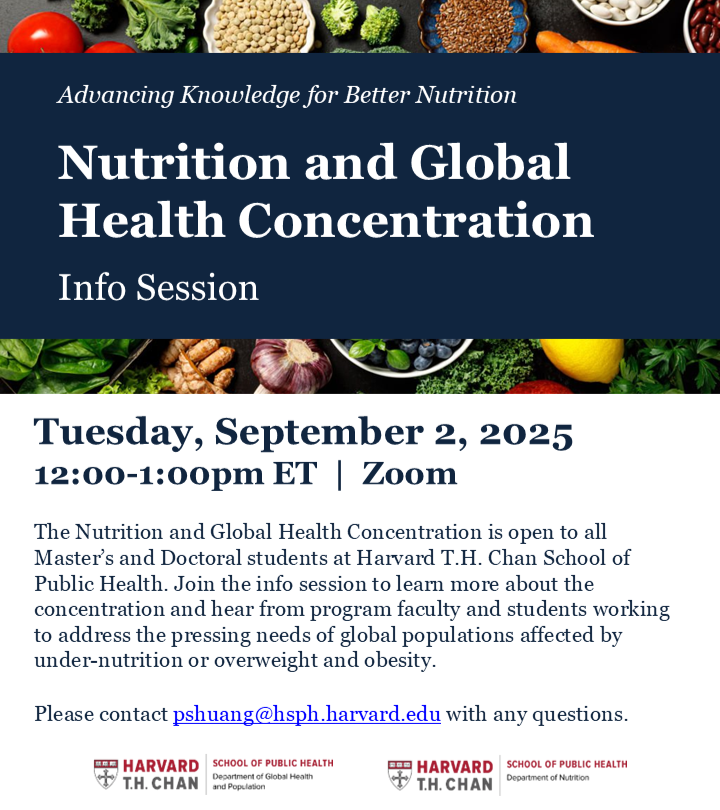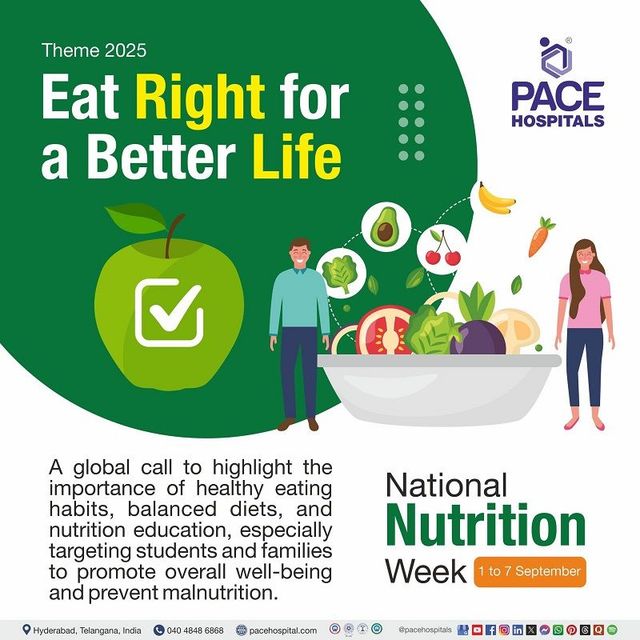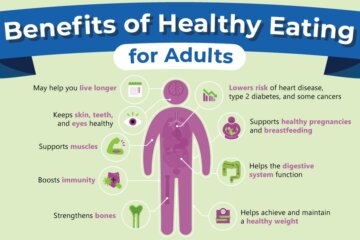Have you ever wondered how what you eat affects your everyday life? Nutrition isn’t just about filling your stomach—it’s the key to feeling energetic, staying strong, and keeping your mind sharp.
Understanding the importance of nutrition to your health can change the way you live, helping you avoid illness and enjoy life to the fullest. You’ll discover why good nutrition matters so much and how small changes in your diet can make a big difference for your body and mind.
Keep reading to unlock the secrets to a healthier you!

Credit: premierneurologycenter.com
Role Of Nutrition In Health
Nutrition plays a key role in keeping the body healthy. It provides the fuel and building blocks the body needs. Good nutrition supports all body functions and helps prevent many illnesses. It also affects how the mind works and feels.
Nutrition And Body Functions
The body relies on nutrients to work well. Proteins help build muscles and repair tissues. Carbohydrates provide energy for daily activities. Fats support cell growth and protect organs. Vitamins and minerals help bones, skin, and blood stay strong. Without enough nutrients, body functions slow down or stop.
Impact On Immune System
Nutrition affects how well the immune system fights infections. Eating fruits and vegetables gives vitamins that boost immunity. Zinc and vitamin C help the body heal wounds and fight viruses. Poor nutrition weakens defenses, making it easier to get sick. A strong immune system needs balanced, healthy food every day.
Nutrition And Mental Well-being
The brain needs good nutrition to work clearly. Nutrients like omega-3 fatty acids improve memory and focus. Lack of vitamins can cause mood swings and tiredness. Eating balanced meals supports stable emotions and mental energy. Healthy food helps keep the mind calm and alert.
Essential Nutrients And Their Benefits
Essential nutrients are the building blocks of good health. They help the body grow, repair, and function well. Each nutrient has a unique role. Together, they keep the body strong and active. Understanding these nutrients helps you make better food choices.
Macronutrients: Proteins, Carbs, And Fats
Proteins are vital for building muscles and tissues. They also support the immune system and repair cells. Carbohydrates provide energy for daily activities and brain function. The body breaks carbs into glucose, its main fuel source. Fats protect organs and help absorb vitamins. They also supply long-lasting energy and support cell health.
Vitamins And Minerals
Vitamins help the body perform many functions. They support vision, skin health, and the immune system. Minerals like calcium and iron build strong bones and carry oxygen in the blood. These nutrients prevent diseases and keep the body balanced. Eating a variety of foods ensures you get enough vitamins and minerals.
Water And Hydration
Water is essential for life. It helps regulate body temperature and removes waste. Proper hydration keeps joints lubricated and aids digestion. Drinking enough water improves focus and energy. The body needs water every day to stay healthy and function well.
Nutrition For Disease Prevention
Nutrition plays a key role in preventing many diseases. The food we eat affects our body’s strength and ability to fight illness. Healthy eating helps keep our organs working well. It also reduces the chances of getting chronic diseases.
Choosing the right foods supports the immune system. It lowers inflammation and protects cells from damage. Good nutrition builds a strong foundation for long-term health.
Reducing Risk Of Chronic Diseases
Eating a balanced diet lowers the risk of chronic diseases. These include heart disease, cancer, and stroke. Foods rich in vitamins, minerals, and antioxidants help protect the body. Whole grains, fruits, and vegetables are especially important.
Limiting processed foods and sugar reduces harmful effects on the body. A healthy diet can control weight and blood pressure. This reduces the burden on the heart and other organs.
Nutrition And Heart Health
Heart health depends greatly on nutrition. Eating foods low in saturated fat and cholesterol helps keep arteries clear. Omega-3 fatty acids found in fish improve heart function. Foods high in fiber lower bad cholesterol levels.
Reducing salt intake controls blood pressure. Balanced meals help maintain a healthy heart rhythm. Good nutrition reduces the risk of heart attacks and strokes.
Role In Diabetes Management
Nutrition is vital for managing diabetes. A diet with controlled carbohydrates keeps blood sugar stable. Choosing whole grains and fiber-rich foods slows sugar absorption. Eating regular meals prevents dangerous spikes and drops in blood sugar.
Limiting sugary drinks and sweets helps control diabetes symptoms. Proper nutrition supports insulin function and reduces complications. It improves quality of life for those with diabetes.
Nutrition Across Different Life Stages
Nutrition plays a vital role throughout life. Every stage has unique needs. Proper nutrition supports growth, health, and energy. It helps prevent diseases and keeps the body strong. Understanding these needs helps us make better food choices.
Nutrition In Childhood And Adolescence
Children and teens need more nutrients for growth. Protein helps build muscles and tissues. Calcium and vitamin D strengthen bones. Iron supports brain development and energy levels. Eating a variety of fruits and vegetables boosts immunity. Healthy habits formed early last a lifetime.
Adult Nutrition Needs
Adults need balanced meals to maintain health. Protein supports muscle repair and metabolism. Fiber aids digestion and heart health. Vitamins and minerals keep the immune system strong. Portion control helps manage weight. Drinking enough water keeps the body hydrated.
Nutrition For Seniors
Seniors need fewer calories but more nutrients. Protein helps preserve muscle mass. Calcium and vitamin D reduce bone loss. Fiber prevents constipation and supports digestion. Antioxidants protect cells from damage. Eating small, frequent meals can improve appetite.
Healthy Eating Habits
Healthy eating habits build a strong foundation for good health. They help the body get the nutrients it needs to grow, repair, and stay active. Good nutrition supports the immune system and reduces the risk of many diseases. It also improves energy levels and mood.
Eating well means making smart food choices every day. It means balancing different food groups and controlling portion sizes. These habits support long-term health and well-being.
Balanced Diet Tips
A balanced diet includes fruits, vegetables, grains, protein, and healthy fats. Each group provides essential vitamins and minerals. Choose whole grains like brown rice and oats over refined grains. Eat plenty of colorful vegetables to get antioxidants and fiber. Include lean proteins such as chicken, fish, beans, or nuts. Healthy fats from sources like olive oil and avocados help the brain and heart.
Limit sugary drinks, processed snacks, and fried foods. Drink water throughout the day to stay hydrated. Small changes in diet can lead to big health benefits.
Meal Planning Strategies
Planning meals helps control what and how much you eat. Prepare a weekly menu to include all food groups. Cooking at home lets you avoid extra salt, sugar, and fat. Use leftovers wisely to reduce waste and save time.
Keep healthy snacks handy to avoid unhealthy temptations. Portion meals to prevent overeating. Set regular meal times to maintain energy and metabolism. Planning also saves money and reduces stress about food choices.
Avoiding Nutritional Deficiencies
Nutritional deficiencies happen when the body lacks important nutrients. This can cause tiredness, weak bones, or poor immune function. Eating a variety of foods helps prevent these problems.
Include foods rich in iron, calcium, vitamin D, and B vitamins. For example, leafy greens, dairy products, eggs, and fortified cereals. Consider supplements only when advised by a doctor. Regular check-ups can detect deficiencies early.

Credit: hsph.harvard.edu

Credit: www.pacehospital.com
Frequently Asked Questions
What Role Does Nutrition Play In Overall Health?
Nutrition provides essential nutrients that support body functions. It boosts immunity, improves energy levels, and promotes mental health. Good nutrition helps prevent chronic diseases and supports growth and repair. Balanced eating is crucial for maintaining optimal health throughout life.
How Does Nutrition Affect Disease Prevention?
Proper nutrition strengthens the immune system and reduces inflammation. It lowers the risk of heart disease, diabetes, and obesity. Nutrient-rich foods help control blood pressure and cholesterol. Eating a balanced diet is key to reducing disease chances.
Why Is Balanced Nutrition Important For Mental Health?
Balanced nutrition supplies the brain with necessary vitamins and minerals. It enhances mood, memory, and cognitive functions. Poor nutrition can lead to anxiety and depression. Eating well supports emotional well-being and mental clarity.
How Can Nutrition Impact Physical Performance?
Good nutrition fuels muscles and improves endurance. It aids recovery and reduces injury risk. Proper hydration and nutrient intake enhance strength and stamina. Athletes rely on balanced diets for peak physical performance.
Conclusion
Good nutrition supports strong bodies and sharp minds. It helps prevent diseases and boosts energy every day. Eating balanced meals improves mood and sleep quality too. Small changes in diet can lead to big health benefits. Choosing healthy foods shows care for yourself and your future.
Remember, nutrition is a key part of a happy life. Take simple steps now for better health tomorrow. Your body will thank you.

“As the voice behind Radiant Glow Health, we are dedicated to being your ultimate wellness and vitality companion. Our mission is to inspire and guide you on your journey to a healthier and more vibrant life. Join us as we explore holistic health practices and empower you to radiate wellness from within.”



